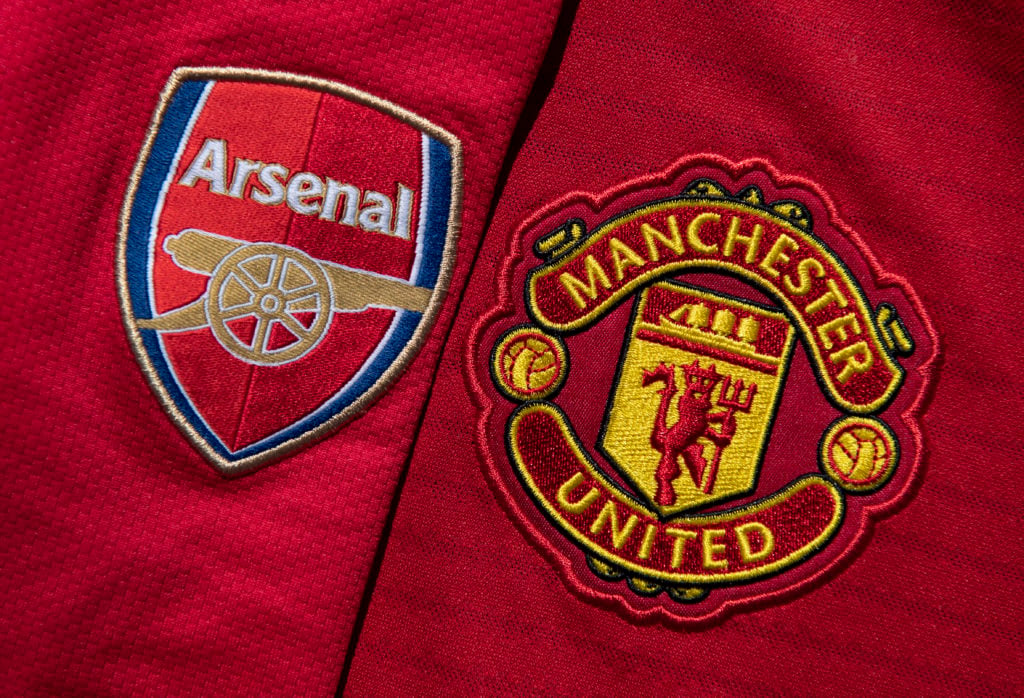Arsenal on course to blow Man United out of the water as Kieran Maguire issues £155m prediction

Yesterday at 12:28 PM
Arsenal’s renaissance on the pitch in recent years has stopped short of delivering the Premier League title but has also yielded a major financial turnaround.
After seven seasons without Champions League football, Arsenal had fallen significantly far behind their peers in the so-called Big Six in terms of revenue generation.
As well as missing out on prize money, the Gunners’ seven years in the wilderness have had a knock-on effect on commercial and matchday income.
That has forced owners Stan Kroenke to diverge from his usual self-funding model at the Emirates in order to bankroll the new signings that brough Mikel Arteta success.
And while 2024-25 has not got of to the start that the KSE regime – led by Stan Kroenke and his son, Josh Kroenke – would have wanted, they are looking to capitalise on the broader momentum in N5.
Earlier this year, Josh Kroenke revealed Arsenal are looking at expanding the Emirates, although they are at the earliest stages of exploration.
Those plans may have taken a step forward this week, with reports that Arsenal could be looking at a capacity of 80,000.
To explore just how transformative that could be for the club, TBR Football spoke exclusively to Liverpool University football finance lecturer and industry insider Kieran Maguire.
The amount Arsenal will earn from expanding the Emirates Stadium
In the last financial year on record, 2022-23, Arsenal earned £103m through the turnstiles.
That was a non-Champions League year and the figures for 2023-24, when released, will present a noticeable upswing.
And if they do indeed raise capacity by almost 20,000 in a major redevelopment of the Emirates,
“I would anticipate a 50 per cent increase in matchday revenues for Arsenal,” says Maguire, outlining an uplift that would be worth £155m based on their figures from 2024-25.
Significantly, that would make Arsenal the biggest matchday income generators in the Premier League, surpassing Man United.
“If you take a look at what has happened with Spurs, they went from 35,000 to 60,000 but their commercial and matchday revenue trebled.
“It will be premium price points at the Emirates Stadium. It will be geared towards the corporate sector and the affluent sector of the fanbase.
“Those Arsenal fans who are currently on the waiting lists for season tickets shouldn’t really be rubbing their hands together in anticipation of the waiting list going down.
“Season ticket holders for clubs like Arsenal have outlive their usefulness in terms of their financial utility to the club.”
Barriers to expanding the Emirates Stadium
When Stan Kroenke’s Los Angeles Rams built the SoFi Stadium, the Missouri-born billionaire privately provided almost all of the finance for construction costs as opposed to relying on debt.
Given that costs stretched to around £4bn, that would indicate that Kroenke has both the liquidity and the inclination to fund capital expenditure projects for his teams, including Arsenal.
That would mean that debt would not be an issue for Arsenal, who would likely be given favourable rates by their owner similar to the structure that Spurs have in place at the Tottenham Hotspur Stadium.
Arsenal would need to consult and convince local residents of the merits of the plan, which is never a mean feat.
There is some signal this week that they have already started laying the groundwork in this regard, with the club publishing a study that outlined the £616m economic they have had on the local community.
It would be a costly venture too given that they would likely have to build up, and the seats further from the ground, as any stadium architect will tell you, are the most expensive.
But with Premier League clubs across the board improving their infrastructure, the real issue is whether the Gunners can afford not to rebuild – at least in the long term.
